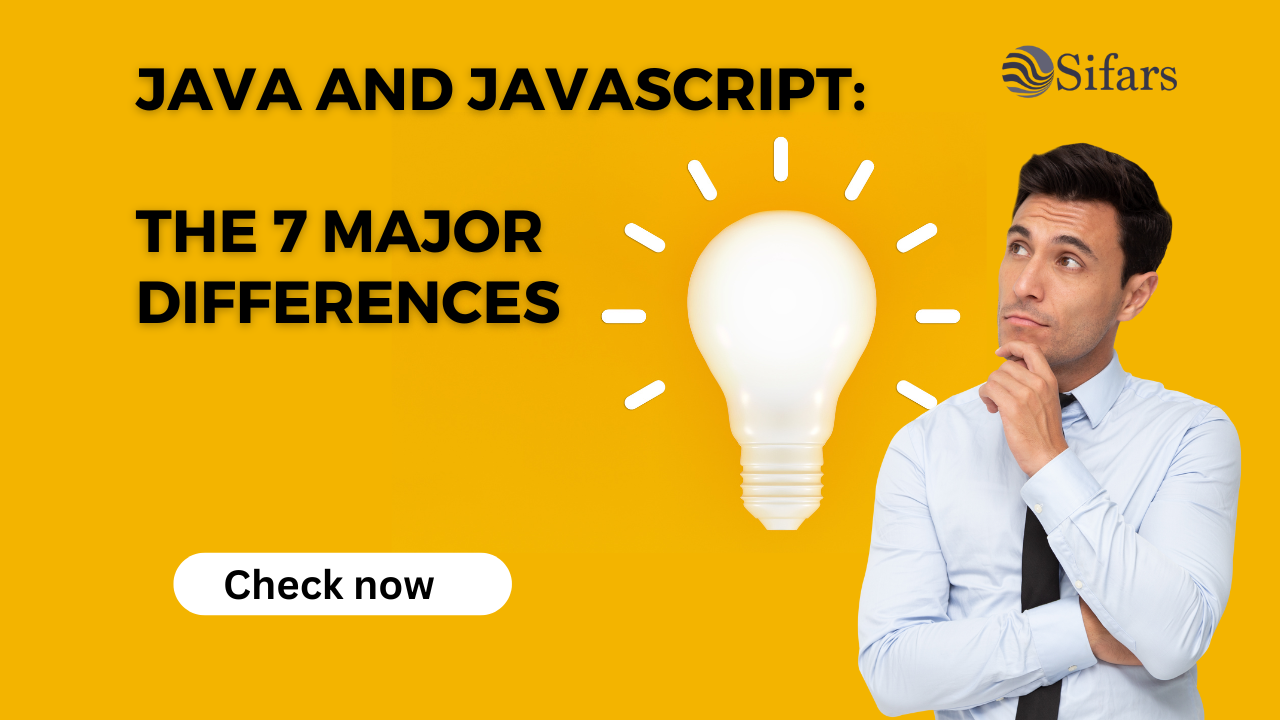
Java and Javascript: The 7 Major Differences
Java and Javascript: Know The 7 Major Differences
There are a lot of things that often confuse us in day-to-day life. Sometimes English, names, features, and applications create confusion. There is somewhat confusion between Java and Javascript too.
It’s time we resolve this conflict of words and understand the basic underlying concepts. So, why not bring yourself a coffee and sip down as you start reading the following-
Java and Javascript
What is Java?
Java is a high-level, object-oriented that is often treated as a class-based programming language. The beauty lies in that we can run compiled Java code in any system. Therefore, it is a platform-independent language that is based on the principle of efficiency. Java runtime environment makes it possible to follow the principle of Write Once, Run Anywhere.
What is JavaScript?
Java script is a server-side and client-side programming language. Javascript is the aptest language used to create web apps. Users and developers make use of the layers of the application for their use. Javascript is known for its
Incredible promising high speed
Cross-Platform Compatibility
Ease of use and application
Javascript adjuncts well with varied markup languages like HTML and CSS to create a web application from scratch. Java script is used to create applications in sectors of server development, gaming, web development, and robotics too.
One also must know that big tech giant like Facebook, PayPal, Netflix, Google, Uber, and HBO uses JavaScript and their frameworks in their products. Certainly, They use javascript libraries and frameworks like angular and React js.
Also, read 14 Super features of Angular js
?Differences
Both Java and Javascript are the most widely accepted languages by developers owing to the numerous characteristics it exhibits. A few of them are listed here
? Popularity
You might have heard the word Java many times if you are somewhat related to technical background. It has numerous features that make it one of the most widely accepted languages that attracts many developers. On average, more than 3.5 billion devices are running on Java.
An independent study suggests that JavaScript is one of the most commonly used programming languages on the internet. A whopping figure – 98% of all websites make use of JavaScript as of March 2023, speaks for itself.
?Object-Oriented
Java is one of the languages that is a completely object-oriented programming language, on the other hand, Javascript is a scripting language. It works on the concept of object model as it treats everything as an object. It solves the problem by taking some steps easily. Moreover, both languages use objects and classes to perform actions.
? Syntax
Java primarily makes use of syntax that is similar to C or C++. JavaScript uses a syntax similar to the C programming language. Nevertheless, they both correlate as they both use objects and classes.
? Compilation
Java program is firstly compiled to byte code, which is understood by the Java Runtime Environment (JRE). Secondly, the byte codes are interpreted by the Java Virtual Machine(JVM). Therefore Java makes an interpreted language.
On the contrary, Java script is a fully interpreted language. Javascript programs interpret line by line while checking for bugs aside.
? Running Platform
Java requires to have a setup before execution. Java programs and applications work smoothly on Java Virtual Machine (JVM). Also, it uses and installs a Java Software Development Kit (SDK) beforehand. This platform facilitates the execution of Java code. One of the most important features of Java is that it is platform-independent. It is because of JRE (Java Runtime Environment) that it works and runs on any platform and system.
Javascript on the other hand does not require a pre-setup. Javascript programs are mostly run on the web browsers.
?Compatibility
Both languages promise compatibility and excellent performance. Java is a cross-platform compatible language and supports Operating Systems like Windows, macOS, and Linux. Javascript on the other hand is cross-browser compatible and supports browsers like Chrome, Firefox, and Safari, among others. Also, it supports diverse operating systems.
?High Performance
Java promises high performance with its flowing execution of Java code. It makes use of a compiler called JIT (Just-in-Time). Java works with compiler and interpreter thus enabling faster running and efficiency thus promising performance
Javascript helps build interactive and quick-responding web applications. Moreover,It builds and deploys the files to a production environment and tools that can help one find problems once your site goes live.
?Multi-threading
Multi-threading allows us to execute multiple tasks simultaneously, which saves a lot of time. We can use multi-threading in the Java code. Certainly,we can break down the larger task and use multi-threading to complete it more fastly than the traditional way.
In the time of promptness, performing multiple tasks for efficiency is what makes it so adored language. It works by breaking down the large task into smaller tasks thus promoting multi-threading and ensuring speed in the execution of tasks
Java and Javascript
| Parameter | Java | JavaScript |
| Programming | Object-oriented programming language | Scripting language with multiple paradigms |
| Extension | .java | .js |
| Syntax | Similar to C or C++. | Similar to programming |
| Type checking | Statically Typed | Dynamically typed |
| Compilation | Compiled and interpreted | Strictly interpreted |
| Running platform | Runs on the Java Virtual Machine | Runs on a web browser |
| Concurrency | Thread-based approach | Event-based approach |
| Multithreading | Supports multithreading | Does not support multithreading |
We hope now you have got a fair idea of difference between the Java and Javascript. If you are still having doubts contact our team of experts who specialize in the domain and provide expert Java and javascript services.


